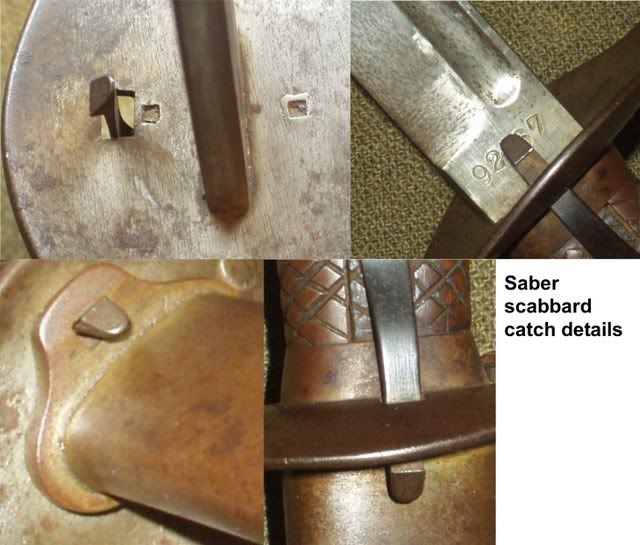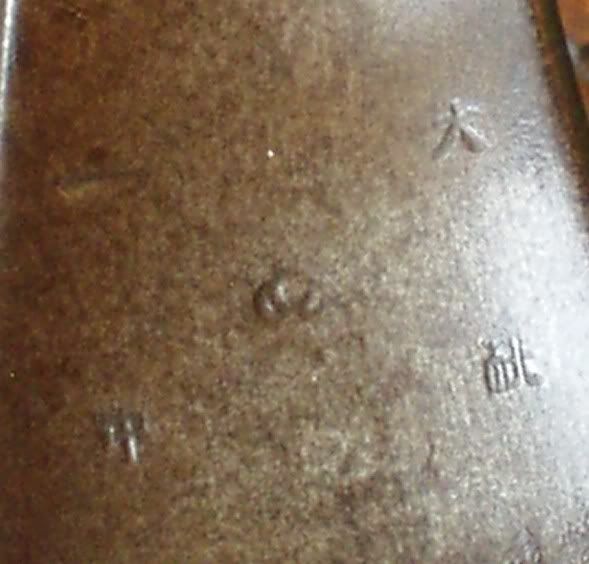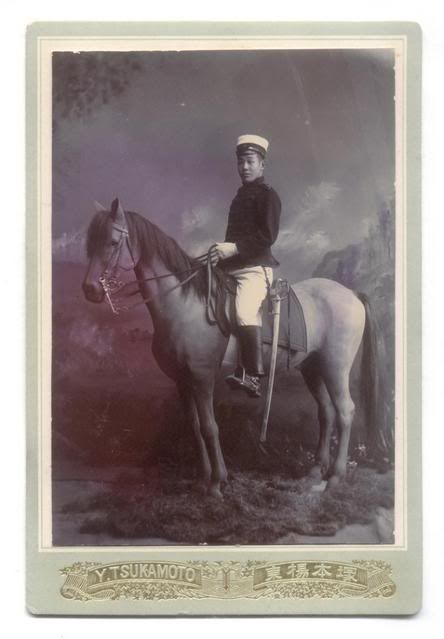 |
| My Type 32 "Otsu" Sword |
 |
| The Chape |
The sword has survived nearly 100 years quite well as evidenced by the fact that the serial number on the scabbard (shown here) and the blade match. The scabbard is in good condition and the quality is apparent in that the brazed seam (it was stamped as one piece, folded over and brazed) is in excellent condition. Also, the throat of the scabbard is brass lined to protect the blade.
 This saber has a unique or at least seldom seen feature, an integral catch that holds the saber in the scabbard but can be instantly released by the index finger as the saber is drawn. Simple and absolutely effective. I've included a photo of several angles of the catch. This is one of my favorite features of this saber.
This saber has a unique or at least seldom seen feature, an integral catch that holds the saber in the scabbard but can be instantly released by the index finger as the saber is drawn. Simple and absolutely effective. I've included a photo of several angles of the catch. This is one of my favorite features of this saber. |
| Guard Marks |
These Japanese sabers, introduced in the late 19th Century, have arsenal/machine made blades with serial numbers on the ricasso and will commonly have arsenal stamps on the guard. The hilt back strap on Type 32 model (such as this one), introduced in 1899 and produced until 1945, is checkered steel (commonly blackened). The wood grips are also checkered. There is a leather finger loop on the inside of the guard. The blades have a long, wide fuller running the total length of the blade. The scabbards are steel with a single suspension ring. These are commonly mislabeled as 1886 cavalry sabers. The type 32 replaced the earlier enlisted men's swords and the brass hilt Type 25 Cavalry & NCO sword. There are two lengths, the longer 33" bladed sword being for Cavalry NCOs and enlisted men while the shorter 30.5" bladed sword was for other branch NCOs. This has the shorter blade.
 |
| As it should be... |
These are using swords/sabers not the dress items one often sees from about this period in Europe. During the Russo-Japanese war, battles were fought almost entirely with sword and lance backed up by artillery. Amazing but apparently both sides needed to conserve ammunition! Here's a pic of a cavalry officer of the period.

Links:
- Russo-Japanese War Research Society
- Notes on the Russo-Japanese War
-






















No comments:
Post a Comment